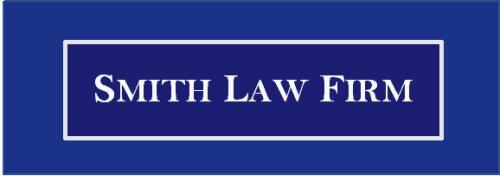Best Mortgage Lawyers in Canada
Share your needs with us, get contacted by law firms.
Free. Takes 2 min.
Free Guide to Hiring a Real Estate Lawyer
Or refine your search by selecting a city:
List of the best lawyers in Canada
About Mortgage Law in Canada
Mortgage law in Canada governs the relationship between borrowers and lenders in the context of real estate financing. A mortgage is essentially a loan secured by real property, and mortgage law ensures that both parties fulfill their contractual obligations. Canadian mortgage law has a dual legal heritage, with influences from both common law and civil law traditions, depending on the region. Federally, mortgages are regulated through the Bank Act, while provinces enforce additional rules to protect both lenders and borrowers. Understanding these regulations is crucial for anyone partaking in mortgage transactions.
Why You May Need a Lawyer
There are several scenarios where legal assistance in mortgage matters becomes essential:
- Buying or Selling Property: Lawyers can assist in negotiating terms, reviewing agreements of purchase and sale, and ensuring that title transfers and mortgage documents are correctly executed.
- Refinancing: Legal counsel is often required to review refinancing agreements to secure better interest rates or terms.
- Mortgage Disputes: A lawyer can help resolve issues like default on payments or foreclosure actions initiated by lenders.
- Title Issues: Lawyers ensure there are no encumbrances or defects in the property's title.
- Legal Advice: Mortgage laws can be complex, and a lawyer can provide expert advice suited to your specific situation.
Local Laws Overview
Mortgage laws in Canada vary across provinces, but there are some common aspects:
- Mortgage Registration: Mortgages must be registered under land title systems in respective provinces to be legally binding.
- Foreclosure Process: This legal process varies by province, with some areas like British Columbia allowing non-judicial foreclosures, while others like Ontario require judicial proceedings.
- Standard Charge Terms: Most mortgages are regulated by standard charge terms which specify lender and borrower rights and obligations.
- Consumer Protection: Laws exist to protect consumer interests against unfair lending practices and ensure transparency in mortgage disclosures.
Frequently Asked Questions
What is the difference between a fixed-rate and a variable-rate mortgage?
A fixed-rate mortgage has a constant interest rate throughout the loan term, providing stable payments. A variable-rate mortgage has an interest rate that can change based on market conditions, potentially offering lower initial rates but variable future payments.
How can I qualify for a mortgage in Canada?
To qualify for a mortgage, you'll need a good credit score, a stable income, necessary down payment, and meet certain lender-specific criteria such as debt-to-income ratio requirements.
Can I pay off my mortgage early?
Yes, many lenders allow early repayment options, though it may involve prepayment penalties. Check your mortgage agreement for specific terms related to prepaying your mortgage.
What happens if I default on my mortgage payments?
If you default on mortgage payments, the lender can begin foreclosure proceedings to repossess the property. It's important to contact your lender immediately to discuss options if you're facing payment difficulties.
What is mortgage insurance, and do I need it?
Mortgage insurance protects the lender in case of borrower default. It's typically required if your down payment is less than 20% of the property's value.
How can legal counsel assist in foreclosure situations?
A lawyer can assist by negotiating with lenders to modify loan terms, providing defense options in court, and ensuring legal procedures are followed correctly to protect your interests.
What is a mortgage pre-approval?
M ortgage pre-approval provides an estimate of how much money a lender is willing to lend you. It involves assessing your financial situation and creditworthiness, giving you a clearer idea when making an offer on a property.
How can I dispute my property's mortgage interest rates or terms?
Disputes can often be resolved by discussing terms with your lender or seeking mediation or arbitration. A lawyer can help you understand the terms and represent your interests effectively.
Are there specific taxes associated with mortgage transactions?
Depending on the province, taxes such as land transfer tax or property transfer tax may apply to mortgage transactions. A lawyer or tax advisor can provide detailed information based on your location.
What should I do if I suspect mortgage fraud?
If you suspect mortgage fraud, it's important to contact legal authorities and seek immediate assistance from a lawyer to evaluate your legal remedies and protect your interests.
Additional Resources
Several resources can be beneficial for those seeking mortgage-related legal advice:
- Financial Consumer Agency of Canada (FCAC): Provides information and resources about mortgages and consumer rights.
- The Canadian Bankers Association (CBA): Offers insights and guidelines regarding mortgages and lending practices.
- Provincial Real Estate Councils: Provide region-specific information and assistance regarding mortgage transactions.
- Office of the Superintendent of Financial Institutions (OSFI): Regulates financial institutions and outlines guidelines on mortgage lending.
Next Steps
If you require legal assistance for mortgage-related matters, consider the following steps:
- Consult a Lawyer: Reach out to a real estate lawyer with expertise in mortgage law for personalized advice.
- Gather Documentation: Prepare all relevant documents, including mortgage agreements, payment records, and communication with lenders, for your legal consultation.
- Research Local Laws: Be aware of regional laws and regulations pertaining to your specific mortgage issue.
- Explore Alternative Dispute Resolution: Consider mediation or arbitration as potential pathways to resolve disputes outside the courtroom.
- Consider Your Options: Work with your legal advisor to evaluate all available options and choose a course of action that best aligns with your situation and goals.
Lawzana helps you find the best lawyers and law firms in Canada through a curated and pre-screened list of qualified legal professionals. Our platform offers rankings and detailed profiles of attorneys and law firms, allowing you to compare based on practice areas, including Mortgage, experience, and client feedback.
Each profile includes a description of the firm's areas of practice, client reviews, team members and partners, year of establishment, spoken languages, office locations, contact information, social media presence, and any published articles or resources. Most firms on our platform speak English and are experienced in both local and international legal matters.
Get a quote from top-rated law firms in Canada — quickly, securely, and without unnecessary hassle.
Disclaimer:
The information provided on this page is for general informational purposes only and does not constitute legal advice. While we strive to ensure the accuracy and relevance of the content, legal information may change over time, and interpretations of the law can vary. You should always consult with a qualified legal professional for advice specific to your situation.
We disclaim all liability for actions taken or not taken based on the content of this page. If you believe any information is incorrect or outdated, please contact us, and we will review and update it where appropriate.
Browse mortgage law firms by city in Canada
Refine your search by selecting a city.














